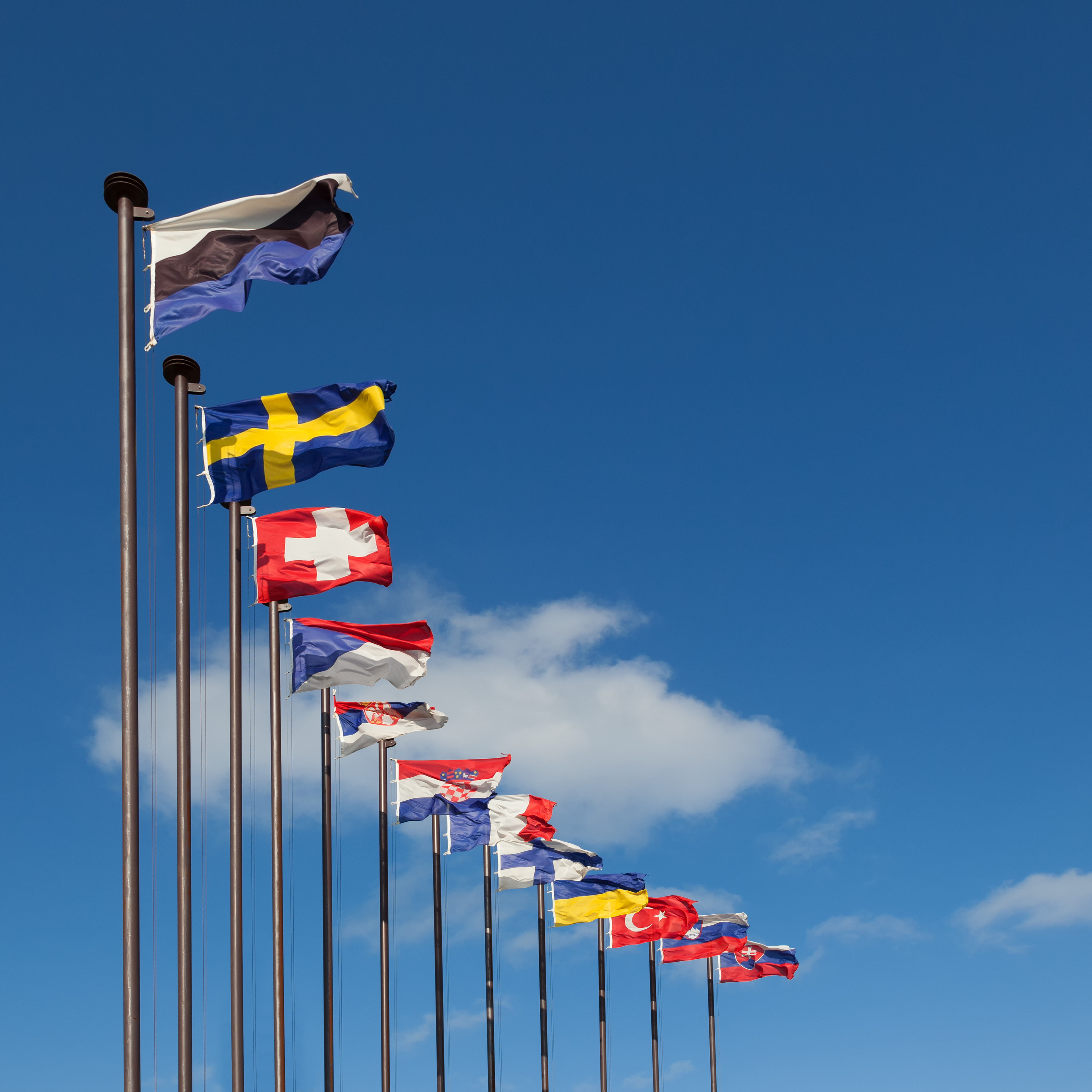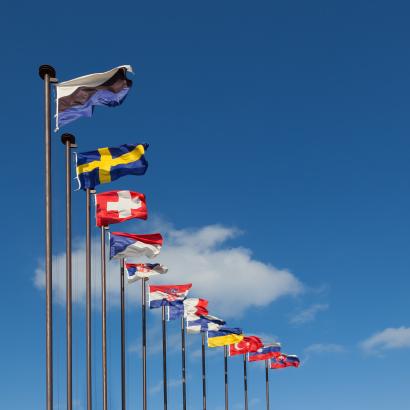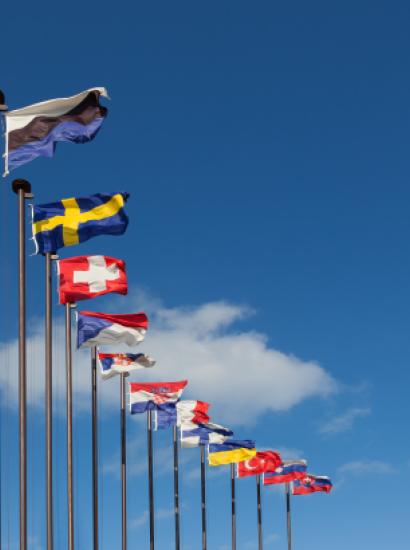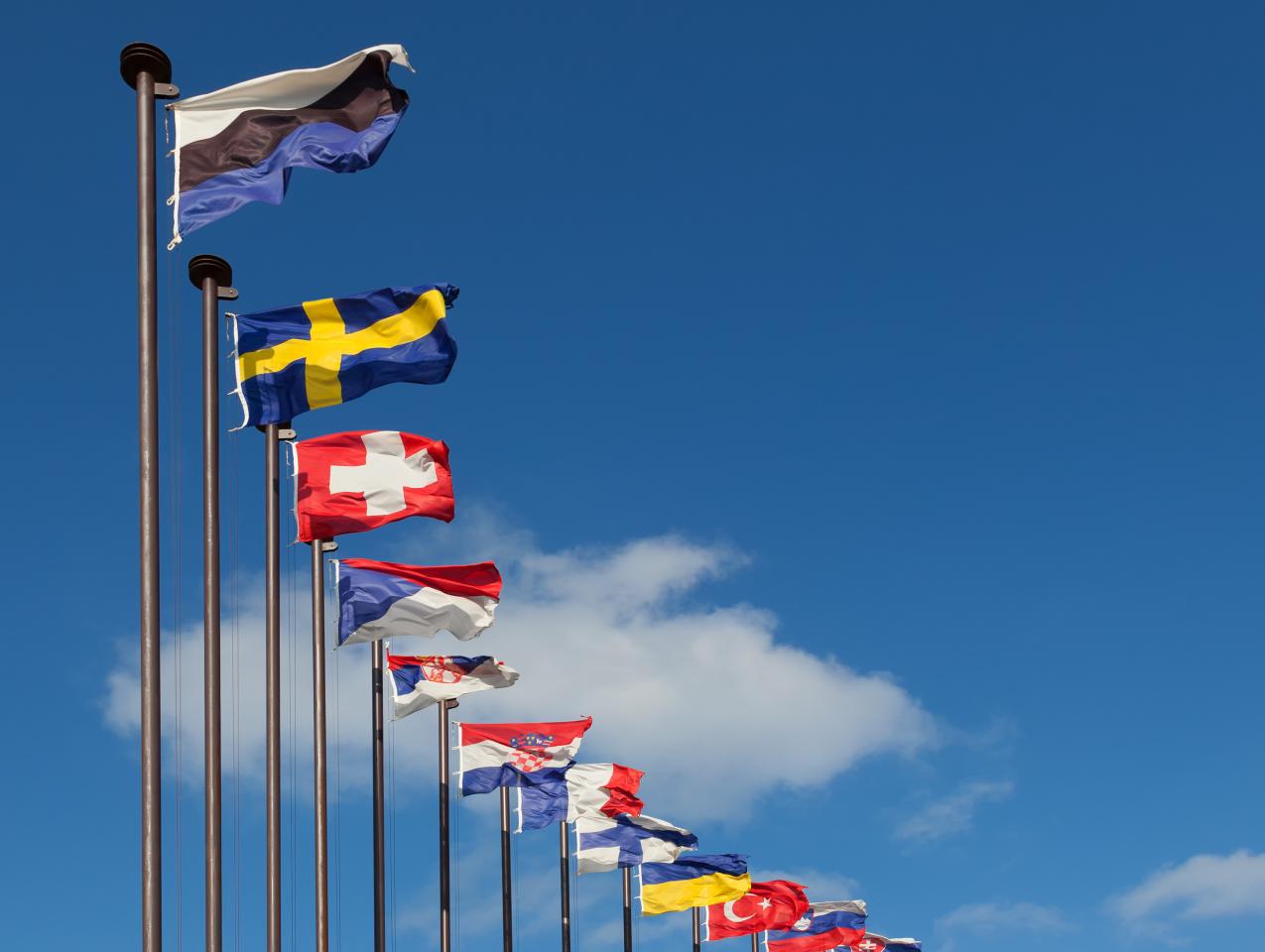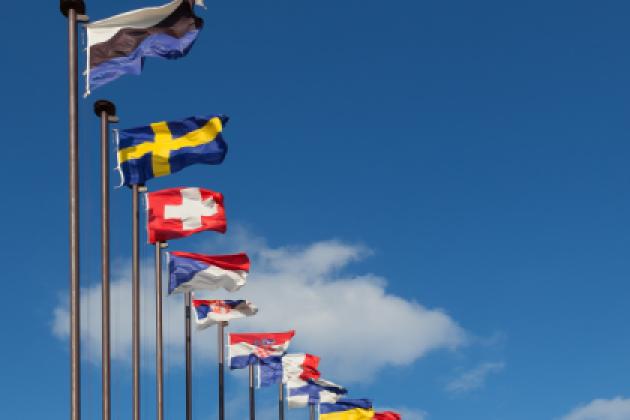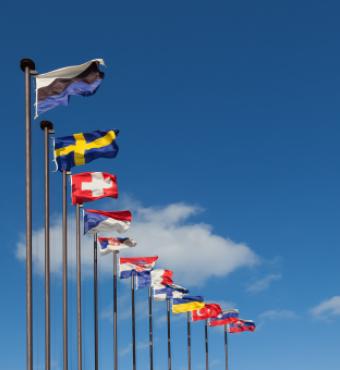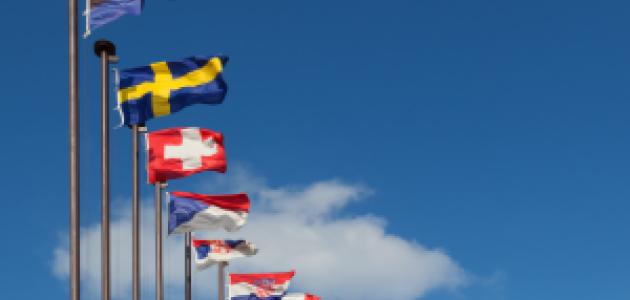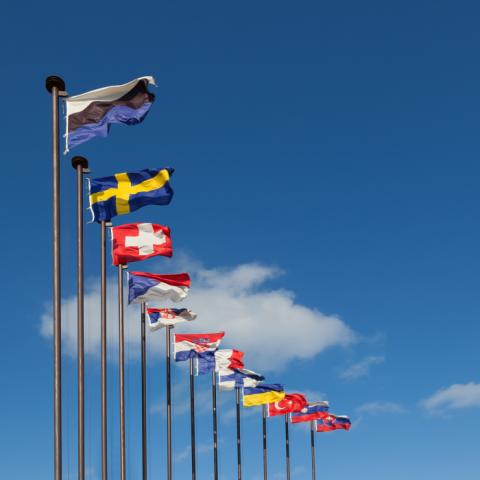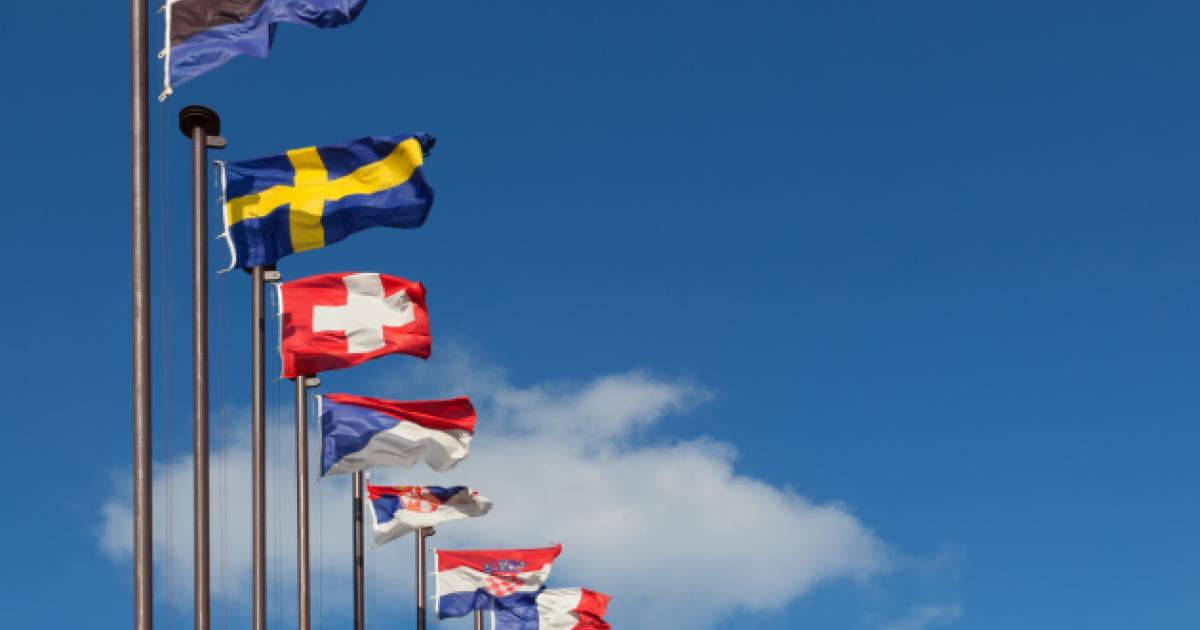Western civilization is in retreat because its constituent cultures lack a shared sense of purpose. Unsure about their common identity and destiny, the countries that make up the West struggle to cope with external challenges of globalization, Islamic terrorism, a resurgent Russia, and an increasingly assertive Asia dominated by China. As a political civilization founded by the 1941 Atlantic Charter, the Western project is today in doubt as European integration is reversing and Donald Trump’s ‘America first’ policy supplants the North Atlantic alliance.
The West’s economic power and military might can scarcely conceal the absence of substantive accord among its members that have dominated global geopolitics over half a millennium – since the fall of Constantinople in 1453 and the nascent Age of Discovery in the 1480s and 1490s. From the outset, the West was beset by internal divisions along either sectarian or geographic lines – Catholic vs. Protestant, North vs. South, or Atlantic vs. Continental. But in the past, Western powers tended to unite around their shared Greco-Roman and Judeo-Christian legacy in confronting the existential threats posed by the Ottomans, Napoleon, Hitler, or Soviet communism. Today the lack of resolve in the face of external adversaries suggests that the Atlantic union of Europe with North America is unraveling.
It was not supposed to be that way. After the demise of the Soviet bloc, both progressives and neoconservatives prophesized Western global hegemony in the shape of a ‘liberal world order’ or a ‘New American Century.’ But the end of the Cold War coincided with a ‘new world disorder’, as Ken Jowitt and Stanley Hoffmann argued – including genocide, the redrawing of borders, the reshaping of national identities, and an escalation of previously frozen conflicts. The West reaped the peace divided, but the 1990s was also a time of crisis and chaos following the implosion of the Soviet system – itself a fusion of the originally Western ideology of communism with Eastern despotism that had the effect of destroying much of Russia’s European culture. In the wake of a peaceful transition from totalitarian communism to democratic capitalism, the historic chance to build a Greater West from Vancouver to Vladivostok was missed – prompting Richard Nixon to ask as early as 1992: ‘who lost Russia?’
Western elites rightly point to Russia’s role in the breakdown of cooperation and the slide into confrontation, but they ignore their own share of responsibility. It is not for want of warning. In his 1957 BBC Reith Lectures, George Kennan had this to say:
There is, let me assure you, nothing in nature more egocentrical than the embattled democracy. It soon becomes the victim of its own war propaganda. It then tends to attach to its own cause an absolute value which distorts everything else. Its enemy becomes the embodiment of all evil. Its own side, on the other hand, is the center of all virtue.
So one reason why the West failed to unite and is now disintegrating is liberal hubris. First, certain Western elites embraced the ‘end of history’ thesis and succumbed to the siren calls of globalization. Thus was born the progressive-neoconservative utopia of a borderless world converging towards the West’s brand of liberal market democracy as the ‘final form of human government.’ Then the post-war international system morphed from a rules-based system organized around cooperation between sovereign states and the institutional embedding of markets into ‘Liberal Leviathan’ (John Ikenberry). It promotes market fundamentalism, mass migration, and military intervention in the name of supposedly universal principles, but in reality, Western liberal values – a mix of oligarchic democracy, individualistic human rights, and cultural relativism.
At every point liberals failed to heed Kennan’s warning. After 9/11, the wars in Afghanistan, Iraq, and Libya (as well as the botched intervention in Syria) exacerbated the threat from Islamic fundamentalists while shredding the West’s moral standing. The financial crash of 2008 destroyed the US-created ‘Washington consensus’ of free-market economics, yet the liberal elites rewarded greed and failure by bailing out banks while workers lost their jobs and communities struggled with in debt.
The year 2016 was when the ghosts of liberal capitalism came back to haunt the establishment. For the first time since the New Deal, Brexit and Trump gave the economic losers a political victory over the Davos oligarchy. Together Brexit and Trump have buried once and for all the conceit that Western liberal market capitalism is the only valid model because it produces more winners than losers.
Gone is the post-1945 promise of progress for every generation. According to a study by the Pew Research Center in December 2015, the American middle class, once the largest class and the very meaning of the ‘American Dream,’ is the majority no longer. In Britain, the government’s social mobility commission found in its annual ‘state of the nation’ published in November 2016 that the Millennials are the first cohort since 1945 to start their career on lower incomes than their parents. Thus Brexit and Trump are insurgencies against those liberals who preach a creed of low wages, deindustrialization, job-exporting trade deals, the deregulation of global finance, and endless war.
The other element of liberal hubris is cultural. Contemporary liberalism fuses market fundamentalism with social egalitarianism and identity politics. Since the 1960s, liberals celebrate the diversity of difference at the expense of civic ties that bind people together above the divides of class, color, creed, wealth, or gender. The liberal preference for individual rights and personal freedom of choice leaves little room for mutual obligation and shared identity. Freedom to choose applies most of all to the wealthy and powerful who are at home in a world of mobility and permanent change. This implies that cultural traditions and people’s sense of belonging are on the wrong side of history and have to be swept away in the name of progress and aspiration.
For all the important advancement in terms of equality and non-discrimination, contemporary liberalism has alienated more socially conservative voters who are often indigenous but also include many migrant communities. These voters represent a majority as most people across the West choose a fairly traditional family structure, value their settled ways of life, and are generally skeptical about the sheer pace of change. Liberal identity politics ignores the importance of families and social groups as the main basis of partisan loyalties, and recent evidence shows that the most significant drivers of political identification and voting behavior are ‘group ties and social identities’.
In short, liberals patronize or simply ignore those who neither support economic-cultural liberalism nor benefit from its effects – Hillary Clinton’s ‘basket of deplorables’ for whom free trade, open borders, and cosmopolitan multiculturalism have meant greater economic hardship and unnerving cultural comprises.
Of course, the liberal tradition is not all bad, and many liberal institutions will endure. But liberalism cannot escape its own inner contradiction between market anarchy and technocratic state – thereby fueling the flames of anger to which one response is populist nationalism – as long as it fails to recognize the nature of the current crisis. It is not merely cyclical because it is not just a periodic setback in an otherwise linear history of progress. Nor are we facing the terminal crisis of an entire system that is about to implode. Marx’s prophecy of capitalism’s collapse has not, and likely will not, come to pass. Rather, we are witnessing a new kind of crisis because liberalism goes against the grain of humanity and erodes the cultural foundations on which it rests.
Indeed, liberalism as a philosophy and an ideology turns out to be contradictory, self-defeating and parasitic on the legacy of Greco-Roman civilization and the Judeo-Christian tradition, which it distorts and hollows out. The triumph of liberalism today more and more brings about the ‘war of all against all’ (Hobbes) and the idea of man as self-owning animal (Locke) that were its presuppositions. But this does not thereby prove those presuppositions, because it is only liberalism that has produced in practice the circumstances that it originally assumed in theory.
In this manner, liberalism marks the unnecessary victory of vice over virtue – of selfishness, greed, suspicion, and coercive control over common benefit, generosity, a measure of trust, and persuasive power. Just as liberal thought redefines human nature as fundamentally individual and abstracted from social embeddedness, so too liberal practice replaces the quest for reciprocal recognition and mutual flourishing with the pursuit of wealth, power, and pleasure – thereby contributing to economic insecurity, cultural disorder, and international anarchy.
Bereft of belief in its own best traditions, the West has abandoned a generous global outlook and fails to lead by example. The growing populist backlash against globalization is amplifying the call to retreat to narrow national self-interest. As the boundaries between wealth and crime are becoming blurred, the world now exhibits a general slide into corruption, corporate crime, and a disregard for the rule of law. To retreat to an insular powerlessness in the face of these threats would be to betray Western identity and threaten long-term security. The only alternative to both chauvinist nationalism and abstract cosmopolitanism is to re-envision the West as something like a commonwealth of nations that reflects a relational covenant among peoples where social and cultural ties based on a common heritage shape identity more than trade or treaties.
Indeed, the many shared traditions that bind together Western cultures across geographic and linguistic boundaries include the Roman idea of citizenship, the Greek notion of a free city, Germanic common law, Judeo-Christian ethics (the dignity of the person, the virtue of free association, and the distinction of religious from political authority), and cultural heritages such as Renaissance humanism, the Enlightenment, classicism, and Romanticism. In addition, there are collective memories that characterize the Greater West, above all the shared sacrifice of the two world wars, the fall of the Iron Curtain, and more recently the victims from Islamic terrorist attacks.
Renewed Western leadership requires a clear set of objectives and the art of establishing priorities. The first priority is to fight ISIS and radical Islam, which is the single greatest threat to the security of the West. The second priority is to avoid war between the Atlantic West and Russia as well as between US-backed Israel and Russia-backed Iran. And the third priority is to integrate China and the “rising rest” while avoiding the danger of a “Thucydidean Trap,” i.e. a situation in which a conservative status-quo power confronts a rising new one. Such a situation could precipitate hostilities in a context where each side lacks a proper cultural understanding of the other, and neither has a coherent strategy to avert war.
In conclusion, the Greater West needs to recover its global leadership position. Western countries have to renew their history of nation- and institution-building both at home and abroad. This means helping to ensure that universal, constitutional provisions and rules are put in place and observed. Otherwise the ongoing slide into authoritarian, illiberal rule will accelerate – a tendency to which the contemporary liberal West is by no means immune.
Dr. ADRIAN PABST is Reader in Politics in the School of Politics and International Relations at the University of Kent, UK, where he also directs the Centre for Federal Studies. He is also a Visiting Professor at the Institut d’Etudes Politiques de Lille (Sciences Po). Since 2012 he has been Associate Editor of Telos. This is the text of a paper delivered at the Hoover Institution on May 8, 2017, at a workshop on the Future of Western Civilization.







